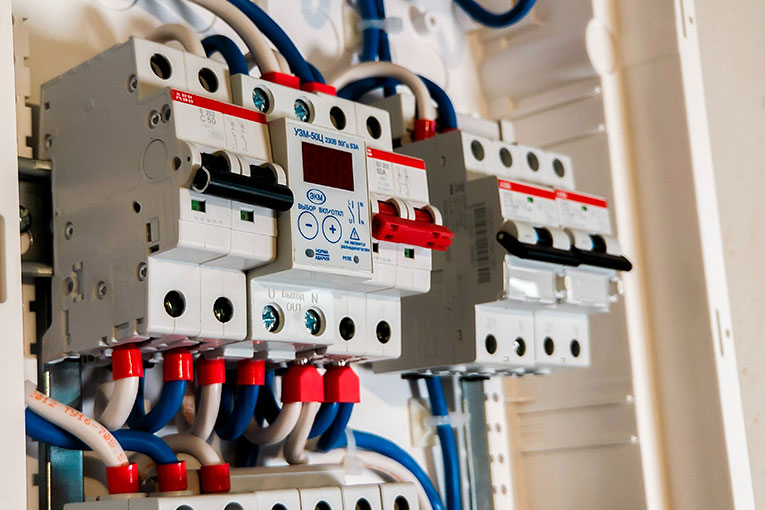Although we rely on electricity to keep our facilities up and running, certain electrical conveniences can be hazardous to you and your employees' safety. While it's important to be conscious of these dangers, being informed and proactive can help you keep your facility safe.
How to Avoid Electrical Hazards in Your Facility
Check Your Facility's Wiring
One of the most common electrical hazards is old, defective, or low-quality electric wires. This threat seems straightforward, but with electrical wiring being out of sight, it can be easy to neglect cables' conditions. It is imperative to have a trained electrical contractor check the safety of your facility's wires regularly. This means checking for old, damaged, and corroded wiring. If there is any concern over a wire's safety, have a professional replace them with new wiring that adheres to safety standards.
Keep Wires Uncovered
Although wires covered by materials or objects are a less commonly known hazard than old or faulty wiring, it is still essential to be cautious. Ensure any cords or wires are free and clear of furniture, clothing, or any other items that could catch fire due to hot wires.
Be Careful With Extension Cords
Extension cords and power strips are a necessity in many facilities. However, these cords can be dangerous if not fixed in place or if they do not have covers over unused sockets. Long cords, such as those found on extension cords, present more opportunities for being pulled, worn, or damaged, which would pose a potential danger. Uncovered sockets in extension cords or power strips can also be dangerous, so it is crucial to use plastic socket covers on any outlet that is not in use.
Be Mindful of Lightbulbs
Although lightbulbs do not present much of a threat on their own, they can get extremely hot. If you have lightbulbs that are too close to furniture, fabrics, clothing, or any other flammable material, it could be hazardous to your facility and employees. Make sure when lightbulbs are turned on and in use that they are not close to any material that could cause a fire. It is a good habit to turn off all lights when you leave a room or if you are otherwise unable to monitor them to avoid any potential danger.
Keep Electrical Outlets and Appliances Away from Water
All electrical outlets must be installed at a safe distance from any water source, and all plugged-in electrical appliances must remain far away from water while in use. Water is a conductor of electricity, which poses the threat of electrical shock. Do not use or handle any electrical appliances while wet. It is also critical that, in the event of an electrical fire, you do not attempt to put out the fire using water. Doing so can make the fire much worse and far more dangerous.
Although there is always an inherent risk when taking advantage of electricity's conveniences, there are steps you can take to make sure your facility and your employees are safe from potential electrical hazards.
Quell Your Electrical Concerns with Synergy Electric
For trusted and professional commercial electricians you can count on, trust Synergy Electric With over 60 years of combined experience in the electrical contracting business, we're well-versed in every commercial electrical need. Contact us today!
